Chicken Droppings Boost Fish Farming for Communities
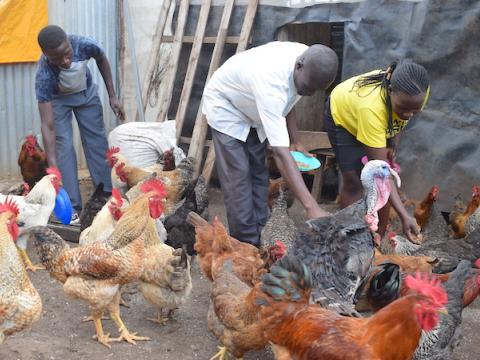
By Irene Sinoya, World Vision Communications Specialist, Kenya
Michael and his wife Eunice have established three fishponds at their home in Homa Bay County, Kenya.
Thanks to the training they received on aquaculture, which was organised by World Vision through funding from The Federal Ministry for Economic Cooperation and Development (BMZ), Michael learned about the significance of fertilising ponds to boost fish production.
Since he could not afford artificial fertilisers sold at the market, Michael decided to begin rearing chickens so he could tap on their organic manure.
The chicken houses are constructed next to the fishponds, with their wooden floors raised above the water.
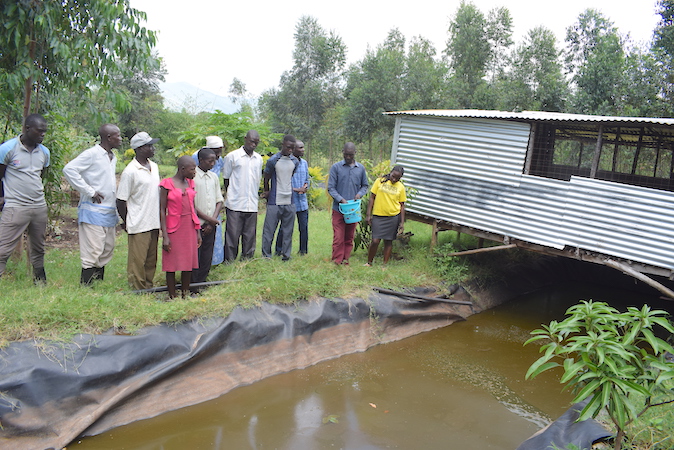
When the chickens produce droppings, they fall through the well-designed wire-meshed open spaces or wooden slates on the floor, and get into the pond where they provide key nutrients to fish.
The fish eat the chicken droppings, which give them protein, carbohydrates, vitamins and minerals. This has enabled Michael to get good fish yields and harvests for family use and for sale at the market.
During the pond water recycling process, the fertilised water does not go to waste. Michael uses it to irrigate various types of horticultural crops such as fruits and vegetables on his farm.
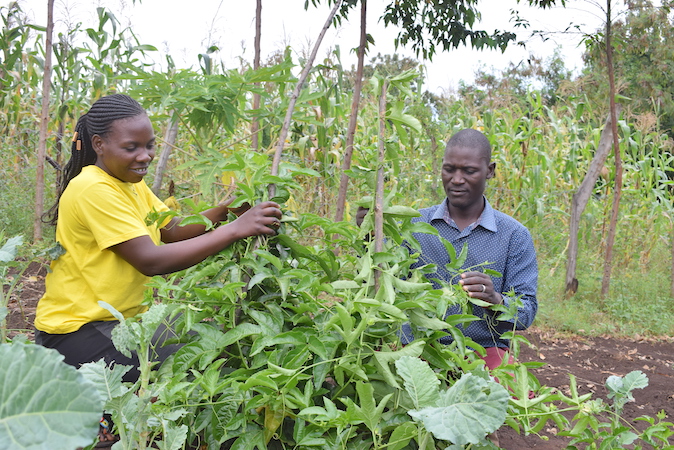
“With the farm and the fish pond, I have sufficient food that enables my family to enjoy a balanced diet. The vegetables and fruits give us vitamins while fish and chicken are good sources of high value protein,” says Eunice
She adds: “I have three children and they are all healthy and energetic because we feed them well. We thank God that they rarely get sick. And those in school are intelligent since they have all the nutrients required.”
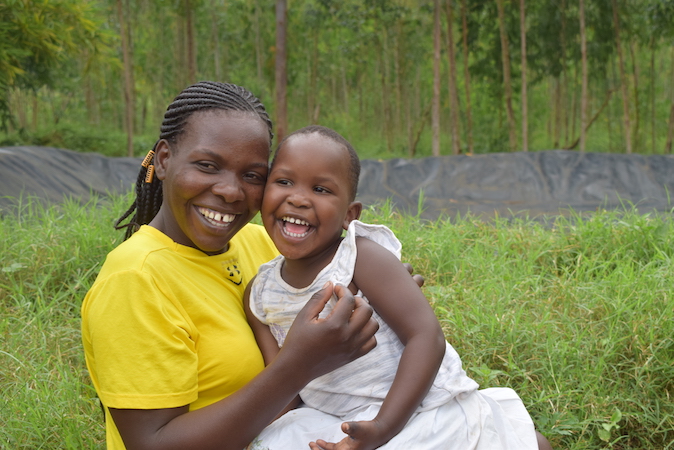
Aside from fertilising the pond, the chickens that Michael and Eunice rear also produces eggs and meat that increase the earnings of the family. The couple began by rearing indigenous chicken breeds. But they later moved to improved breeds that take a shorter time to mature and are less costly to rear.
To improve the livelihoods of other members of his community, Michael is a mentor to many youth under the Sanjweru Self Help Group that he chairs in Homa Bay County.
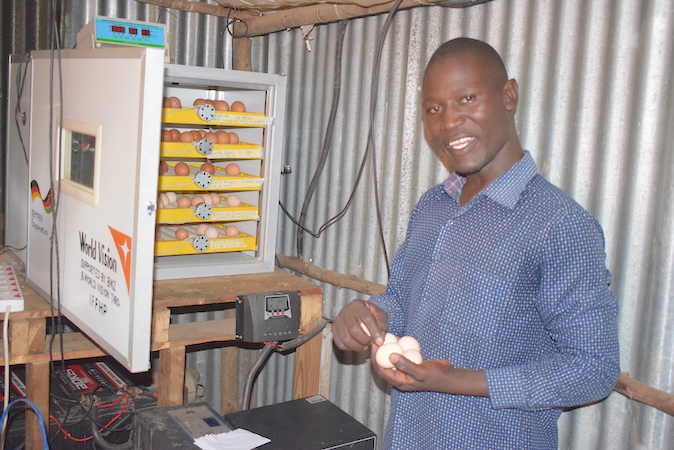
World Vision and BMZ supported the group to acquire a solar incubator and brooder, which they use to hatch chicks and sell to households practicing poultry farming. This venture generates good income for the group.